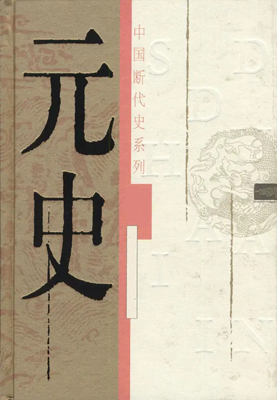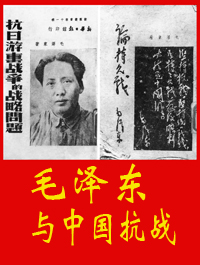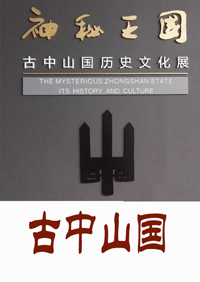At every jolt over the pavement, a drop of blood trickled from Marius' hair.
Night had fully closed in when the carriage arrived at No. 6, Rue des Filles-du-Calvaire.
Javert was the first to alight; he made sure with one glance of the number on the carriage gate, and, raising the heavy knocker of beaten iron, embellished in the old style, with a male goat and a satyr confronting each other, he gave a violent peal. The gate opened a little way and Javert gave it a push. The porter half made his appearance yawning, vaguely awake, and with a candle in his hand.
Everyone in the house was asleep. People go to bed betimes in the Marais, especially on days when there is a revolt. This good, old quarter, terrified at the Revolution, takes refuge in slumber, as children, when they hear the Bugaboo coming, hide their heads hastily under their coverlet.
In the meantime Jean Valjean and the coachman had taken Marius out of the carriage, Jean Valjean supporting him under the armpits, and the coachman under the knees.
As they thus bore Marius, Jean Valjean slipped his hand under the latter's clothes, which were broadly rent, felt his breast, and assured himself that his heart was still beating. It was even beating a little less feebly, as though the movement of the carriage had brought about a certain fresh access of life.
Javert addressed the porter in a tone befitting the government, and the presence of the porter of a factious person.
"Some person whose name is Gillenormand?"
"Here. What do you want with him?"
"His son is brought back."
"His son?" said the porter stupidly.
"He is dead."
Jean Valjean, who, soiled and tattered, stood behind Javert, and whom the porter was surveying with some horror, made a sign to him with his head that this was not so.
The porter did not appear to understand either Javert's words or Jean Valjean's sign.
Javert continued:
"He went to the barricade, and here he is."
"To the barricade?" ejaculated the porter.
"He has got himself killed. Go waken his father."
The porter did not stir.
"Go along with you!" repeated Javert.
And he added:
"There will be a funeral here to-morrow."
For Javert, the usual incidents of the public highway were categorically classed, which is the beginning of foresight and surveillance, and each contingency had its own compartment; all possible facts were arranged in drawers, as it were, whence they emerged on occasion, in variable quantities; in the street, uproar, revolt, carnival, and funeral.
The porter contented himself with waking Basque. Basque woke Nicolette; Nicolette roused great-aunt Gillenormand.
As for the grandfather, they let him sleep on, thinking that he would hear about the matter early enough in any case.
Marius was carried up to the first floor, without any one in the other parts of the house being aware of the fact, and deposited on an old sofa in M. Gillenormand's antechamber; and while Basque went in search of a physician, and while Nicolette opened the linen-presses, Jean Valjean felt Javert touch him on the shoulder. He understood and descended the stairs, having behind him the step of Javert who was following him.
The porter watched them take their departure as he had watched their arrival, in terrified somnolence.
They entered the carriage once more, and the coachman mounted his box.
"Inspector Javert," said Jean, "grant me yet another favor."
"What is it?" demanded Javert roughly.
"Let me go home for one instant. Then you shall do whatever you like with me."
Javert remained silent for a few moments, with his chin drawn back into the collar of his great-coat, then he lowered the glass and front:
"Driver," said he, "Rue de l'Homme Arme, No. 7."
每次遇到街石引起的震动,从马吕斯的头发中就掉下一滴血。
街车到了受难修女街六号时已是夜晚了。
沙威第一个下车,在大门上看一眼门牌,就抬起式样古老的沉重的熟铁门锤,锤上饰有公羊和森林之神角力的像,重重敲了一下。门半开了,沙威把门推开。看门人半露出身子,打着呵欠,似醒非醒,手中拿着蜡烛。
房子里所有的人都已入睡。在沼泽区大家睡得很早,尤其在暴动时期。这个老区,被革命吓坏了,就到睡梦中躲避危险,就象孩子们听见妖怪来了,就急忙把头藏进被窝里。
这时冉阿让和车夫把马吕斯从车里抬出来,冉阿让从胁下抱着他,车夫抱着腿部。
冉阿让一面这样抱着马吕斯,一面把手伸进口子撕得很大的衣服,摸摸他的胸口,证实了他的心还在跳。心跳得比刚才有力一些了,好象车子的震动对生命的恢复起了一定的作用。
沙威对看门人说话的声音和政府工作人员对叛乱者的门房说话时的口气是一样的:
“有个叫吉诺曼的人吗?”
“是这儿,您找他有什么事?”
“我们把他的儿子送回来了。”
“他的儿子?”看门人目瞪口呆地说。
“他死了。”
冉阿让,在沙威后面来到,衣服又破又脏,使看门人见了有点厌恶,他向门房摇头表示没有死。
看门人好象既没有懂沙威的话,也没有懂冉阿让摇头所表示的意思。
沙威继续说:
“他到街垒去了,现在在这儿。”
“到街垒去了!”看门人叫了起来。
“他自己去找死。快去把他父亲叫醒。”
看门人不动。
“快去呀!”沙威又说。
并又加上一句:
“明天这里要埋葬人了。”
对沙威来说,街道上经常发生的事故是分门别类排列整齐的。这是警惕和监督的开始,每件偶然事故都有各自的一格;可能发生的事可以说是放在抽屉里,并根据场合,当街上闹事、发生暴动、过狂欢节、有丧事时,就从抽屉里取出一定数量的案卷来。
看门人只叫醒巴斯克。巴斯克叫醒妮珂莱特;妮珂莱特叫醒吉诺曼姨妈。至于外祖父,人家让他睡觉,考虑到他总会很早知道这件事的。
他们把马吕斯抬到二楼,家里其他的人谁也没有见到,他们把他放在吉诺曼先生套间里一张旧长沙发上。巴斯克去找医生,妮珂莱特打开衣柜,这时冉阿让感到沙威碰了一下他的肩头,他明白了,就下楼去,沙威的脚步声在后面跟着他。
看门人望着他们离开,跟望见他们来时一样,带着半睡半醒的恐怖神情。
他们又坐上马车,车夫坐到自己的位子上。
“侦察员沙威,”冉阿让说,“再答应我一件事吧。”
“什么事?”沙威粗暴地问他。
“让我回一趟家,以后随您怎样处理我。”
沙威沉默了片刻,下巴缩进大衣的领子里去,然后放下了前面一块玻璃:
“车夫,”他说,“武人街,七号。”






